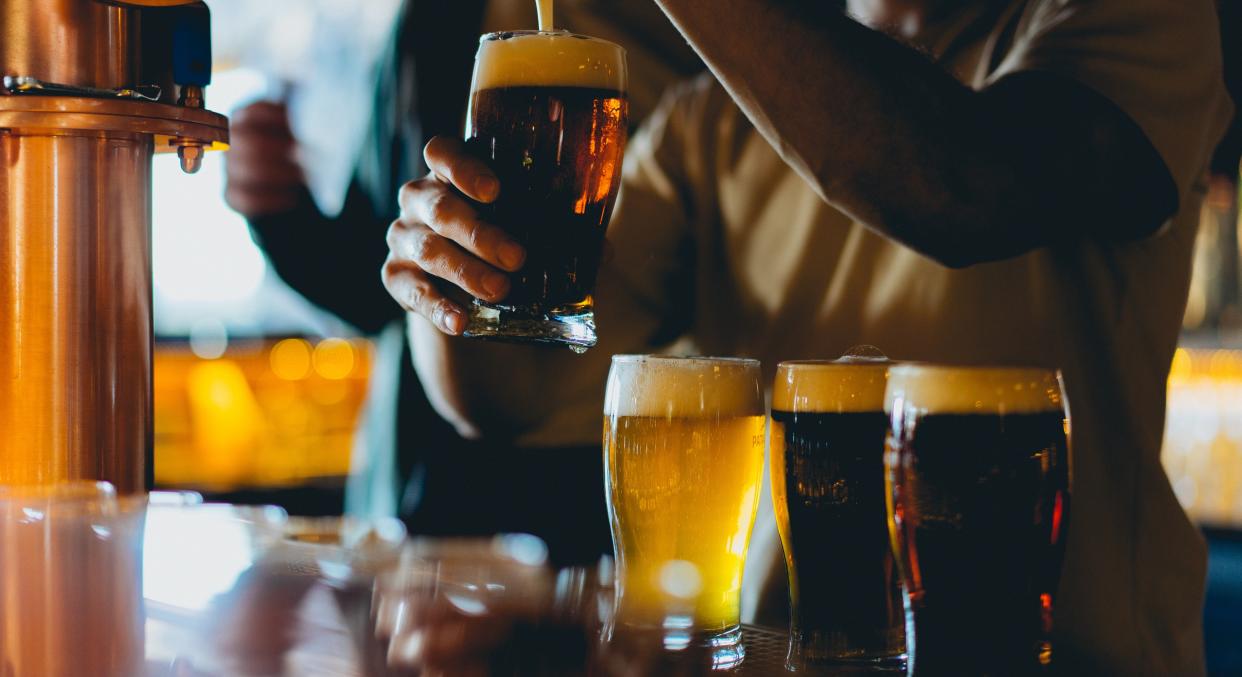Men should stick to just one alcoholic drink a day, say new guidelines

It has been suggested British intake of booze has increased during the coronavirus pandemic - with sales immediately before lockdown spiking by 67%.
However, sticking to just one alcoholic drink a day is significantly better for men’s health, according to new guidelines.
Even just a couple of beverages has been linked to a “meaningful increase” in death risk.
In the United States, the Dietary Guidelines Advisory Committee - which previously encouraged men to have a maximum of two drinks a day - has now reduced this recommendation to one.
Read more: Over a quarter of 18-25 year olds are unaware women should avoid alcohol during pregnancy
With women already advised to stick to one alcoholic beverage, they now state that both genders should have only “up to one drink a day”, according to Forbes.
One drink is defined as containing 0.6 ounces of alcohol - the approximate equivalent of a small glass of wine.
The change comes about after research showing a “modest but meaningful increase” in the death rate between those having two drinks compared to one.
While these guidelines are intended for Americans, they are in line with current UK recommendations which encourage people to consume no more than 14 units of alcohol a week.
Read more: How to drink mindfully during coronavirus lockdown
That equates to two units a day - which can be found in a single pint of beer.
The fresh advice from the Dietary Guidelines Advisory Committee, which meets up every five years, is significantly different from what has been recommended in the decades since the 1980s.
It comes as it was revealed that more than a quarter of 18 to 25 year olds are unaware women should avoid alcohol during pregnancy.
The survey, of 2,000, found that 26% didn’t know the chief medical officer’s guidance that if expecting or trying for a baby, the the safest approach is to avoid booze.
Read more: Former alcoholic who nearly died from liver damage credits turning vegan for saving his life
Just 17% of the young adults polled correctly identified alcohol exposure in utero as having more long-term harm to a baby than other substances, such as heroin, crack cocaine and smoking.
Almost half (49%) of those polled said they got information on booze in pregnancy from social media, or a teacher had discussed it with them.
The study also found that only one in five (22%) could identify that the acronym FASD stands for Foetal Alcohol Spectrum Disorder - the lifelong, brain-based condition that can result from exposure to alcohol in the womb.
Commenting on the findings Sandra Butcher, chief executive, of the National Organisation for FASD, said: “Information is power. It is deeply concerning that so few young people are aware of the dangers.
“Alcohol exposure in pregnancy risks more life-long impact on a developing brain and body than heroin. FASD is preventable - no alcohol, no risk.”


